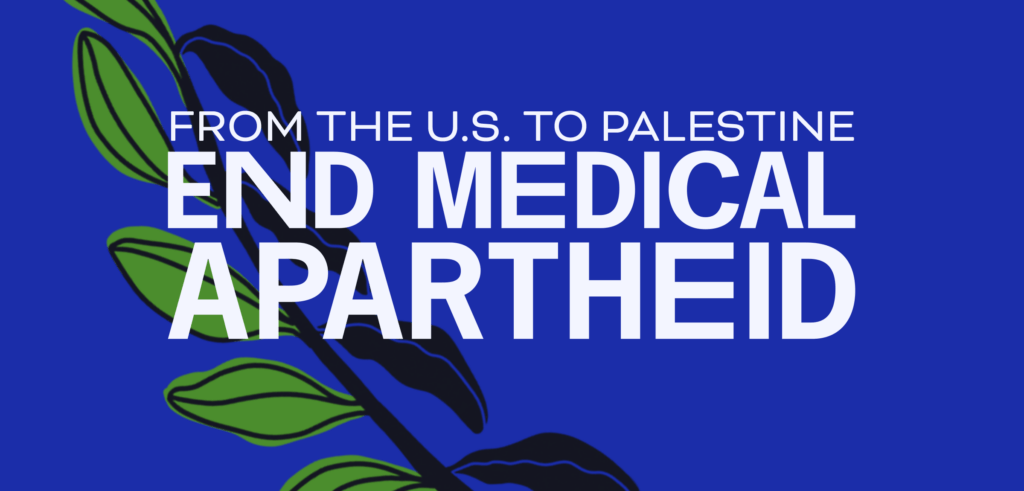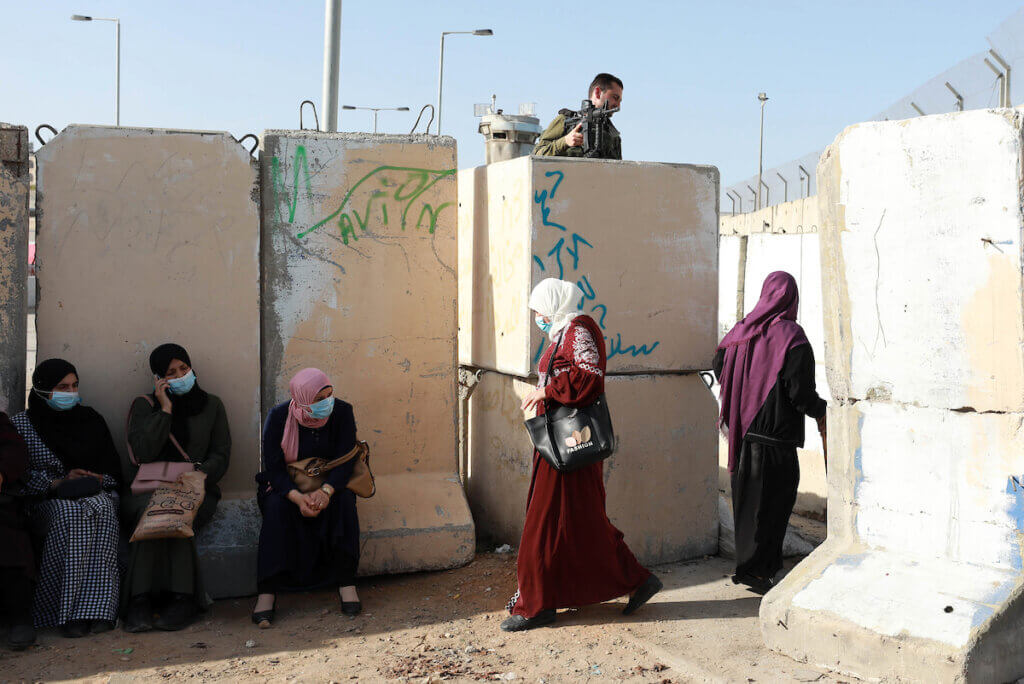The Latest:
- 317,961 Palestinians have tested positive for COVID-19; 287,514 recoveries; 3,406 deaths
- Of Palestinians who tested positive, 193,039 live in the West Bank, 96,081 live in the Gaza Strip, and 28,841 live in East Jerusalem
- 837,892 Israelis have tested positive for COVID-19; 829,696 recoveries; 6,346 deaths
Gaza’s hospitals are nearing capacity as a surge in coronavirus cases continued for another week, and the number of deaths has doubled from just seven days ago.
This current wave coincides with the Ramadan holiday, which began on April 13. The Muslim holy month is traditionally celebrated with evening family gatherings, crowded shopping sprees, and prayers in mosques. While health officials called for nighttime closures, the International Committee of the Red Cross spoke to Palestinians who related their fears, anxieties, and pressure to keep stores open despite the health risks.
“Four out of five families are in precarious job situations with no sustainable income, the unemployment rate was at record rates of over 50%, with youth unemployment reaching almost 70%,” said the ICRC this week. “People need to be able to provide for themselves and their families and keep businesses open.”
Rawan, 26, cosmetics shop saleswoman told the humanitarian group:
“I follow the news about COVID-19 and the second or third wave in Gaza, name it as you wish. The virus will remain among us, and we must adapt and live with it. Ramadan is a good season to increase sales, I cannot close under any circumstances.”
Susanne, 41, a nurse said:
“The situation is scary. Every day I see people dying of COVID-19. When I am at home, I do every possible recipe that I can think of that could increase the immunity of my children. I always wonder how to protect them and how to protect myself so that they don’t have to face my death.”
Shadi Awad, a physician in Gaza told the ICRC:
“Since the beginning of Ramadan, I have worked every day in the respiratory department for 12 hours. We are dealing with a lot of severe cases. Our job has become risky, as we may be infected and could infect our families, neighbors, or friends, We need to be very careful.”

This week, the Invest in Justice Coalition published excerpts from a March 31 roundtable on medical apartheid. Dr. Sahar AlSulibe from the Palestinian Medical Relief Society explained what it’s like to practice during the pandemic. AlSulibe is a gynecologist in Hebron, the West Bank’s largest city. The urban center is surrounded by some of the region’s most impoverished towns and hamlets:
“Many of the communities we are working with have limited healthcare access. During the lockdown, you can’t even find a taxi to get to some of these communities.
For example, Zanouta is a small community where we provide our services. Seven of their tents were demolished by the Israeli military in the last week. Our health system is suffering and we are facing our own limitations. Palestinian women are now shouldering all sorts of unpaid work in the intersection of crises that they face under pandemic and occupation.
I am a doctor working daily with patients but I still have not had access to a vaccine. Israel is violating international law by denying us vaccines, even to our most sick and vulnerable.”

The big picture: It’s worth noting that there is a slight decline in overall cases in the oPt, and that is because the number of new infections is dropping in the West Bank, but not Gaza. We reported last week that the positivity rate in Gaza had spiked once again to 36%. This week it stood at 35%, but the WHO noted that there was a shift in laboratory testing to just those with close contact who had already tested positive and showed symptoms, suggesting a much wider outbreak is occurring.
This seems to track with the increased number of deaths from last week’s 47 to this week’s 83. “This is the highest number of weekly reported deaths since the beginning of COVID-19 community transmission in Gaza Strip,” the WHO said. Most of the deaths are from patients at least 60 years old.
The rampant uptick has pressed Gaza’s burial capacity. Reuters interviewed a gravedigger on Thursday, Mohammad al-Haresh, who said he has buried up to 10 bodies a day, versus up to two in March.
Reuters reported:
“‘Wartime was difficult, but the coronavirus has been much harder for us,’ said Haresh, who dug graves throughout the 2014 Israel-Gaza war.
‘In war, we would dig graves or bury the dead during a truce or ceasefire. With the coronavirus, there is no truce.’”
In the last week there were more than 1,500 new cases reported almost every day in the West Bank and Gaza, according to data on the WHO’s dashboard. Approximately two-thirds of the new cases are in Gaza, which has been the trend since the start of the month.
Related posts:
Views: 0
 RSS Feed
RSS Feed

















 April 24th, 2021
April 24th, 2021  Awake Goy
Awake Goy  Posted in
Posted in  Tags:
Tags: 
















